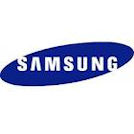 Move over Nokia?
Move over Nokia?
Why Samsung may be taking over the Nigerian, African markets
By SEGUN ORUAME, Lagos
In 2009, one blogger wrote “Nokia is the most popular phone in Nigeria due to its
durability, high quality, features and availability.” That description could as
well be describing a Samsung handset in 2012 to show how much the market has changed
in just three years. And three years is a century in the highly dynamic mobile
technology sector. In 2012, Samsung has ended the Finnish phone maker, Nokia’s, 14-
year leadership of the global mobile handset industry.
Clearly, Nokia dominance is in its fading days in Nigeria. And as a report by
Reuters shows (Read next article), the company’s star is dimming globally. Samsung
and a host of other mobile handset brands, notably of Chinese origin, are
increasingly gaining grounds. It is bad news for the handset king here as it is on
the global stage where Nokia’s kingly rule is becoming ‘moonlight tales’ for history
books. Nokia’s global market share has halved in the last three years in both the
smartphones and basic phones segments for a mix of factors. The Finnish company
must contend with its own vulnerability and the possibility of becoming a second or
third place player in a market it once set the pace.
As Reuters reported, in India, “the world’s second-biggest mobile phone market, with
more than 900 million subscribers, Nokia’s market share has halved in the three
years to 2011, when it sold 31 percent of the total 183 million handsets sold …. In
Africa, its market share slipped to 51 percent last year from 62 percent two years
before. It’s still ahead of rivals because of its superior distribution on the
continent.”
Blame Samsung and other Asian companies for Nokia’s loss. Samsung has been able to
bring to the market, high-end smartphones at affordable prices to meet the
increasing sophistication of a growing middle class and rising demands for phones
that will do more than talk and texts. The Korean company has also been to unload
different attractive models of basic phones into a market where millions of
consumers are still only interested in just talk and nothing more.
Did Nokia misread the market? It did! Did Samsung follow the market and the money?
It did. In the last two years or so, Samsung, hungry for market presence and
revenue, has unleashed unnerving brand-wits and products into a market equally
hungry for new ‘strong’ things at affordable prices.
Want to know the secrets? Dual SIM cards handsets, rugged, affordable and almost
exotic. Add an expansive market network, and you have a company revving up the
market. In the last three years, while Nokia approached the market with an almost
conservative mien, Samsung gained grounds with an extremely dynamic market
aggression and products line. The result? It has upped its market share by almost
500%, cut down patronage for Nokia, and offers an exciting robust alternative to the
cheaper Chinese brands gaining popularity like wild Harmattan fires. Harmattan is
the driest season in Sub-Saharan African when wild bush fires are common.
“More and more people are changing to Samsung handsets. There was a time when we
used to sell only Nokia handsets here for days. But now, for every Nokia you sell,
you would have sold four Samsung handsets and about two or three Chinese handsets,”
said Chima Anthony Nwanchukwu, mobile handset shop owner in Ikeja Computer Village,
Otigba, Nigeria’s biggest mobile handset market.
At the low end and high ends of the market, Samsung has fought for market space with
winning streaks it has steadily maintained in the last two years as a 2011 IT Edge
Intelligence Report on Mobile Handset Trends outlined last year. As a recent
findings by IT Edge Intelligence Unit (ITEIU) shows, Samsung’s emergence as a
dominant force in the smartphone market is tied to its Galaxy phones. The brand
name for its line of Android based Smartphones, the Korean company has shown the
world where the smartphone market is headed and has effectively used its marginal
advantage to edge out other players.
Think it’s a joke? Visit phones outlets in Lagos, Kaduna, Abuja, Port Harcourt and
other major cities in Nigeria, the Galaxy brand is proving the truth, everyone will
go for something good and trendy if its affordable by almost everyone. For as little
as $70 (about N12, 000) or less, you start owning a Galaxy model. It could go as
high as $550 (aboutN83, 000) for the high-end Samsung Galaxy S2 or come down low to
the Galaxy Y.
Does Nokia have a response? Not quite! One Blogger, Mister Mobility (Follow Mister
Mobility on Twitter @Mister_Mobility.) captured it all. He writes: “Nokia doesn’t
really see Nigeria as a smartphone market. This is also the reason that the Lumia
range is not sold officially in Nigeria yet. But the revelation is shocking; isn’t
it? But that isn’t all. I also have it on good authority that Nokia is pushing the
Asha range to take market share from RIM/BlackBerry. It sounds odd to me, as the
Asha range is not a smartphone platform. Asha lacks multi-tasking and native 3rd
party apps, but is loved by networks because operators get to keep all data revenues
unlike the scenario with BlackBerry Internet Service in which revenue is shared.
“I doubt if that means operators don’t like BlackBerry either. They clearly like it
and are pushing it everywhere. That all-round data compression that BIS offers has
been explained here before, and it is of great benefit to the operators’ networks.
But Nokia is certainly correct about Nigeria not being a smartphone market. About
80-90% of mobiles in use in the country are non-smartphones. Amazing, but true. As
such, pushing Asha is not a bad idea. However, it means that Nokia is giving up the
smartphone segment here. It is then no wonder that BlackBerry found it easy
pickings.”
If Nokia is giving up on the smartphone segment, Samsung is certainly not. The
company is effectively encroaching into RIM/BlackBerry’s mainstay and recording
appreciable successes that are adding to its rapid growth portfolio. At the low-end
segment, while Nokia is notching up the market with its Nokia 103 themed on its
traditional approach for affordable and practical phones, Samsung has approached the
market much more ambitiously with phones having more features that appeal to the
youth market such as the Samsung Chat 322 at no more than $60 (N9, 000) having
crashed from the initial $100.






























